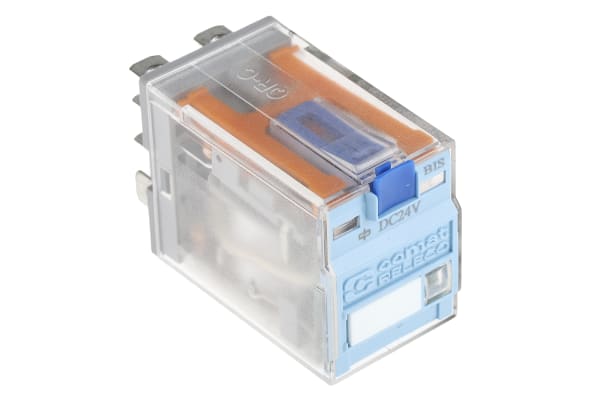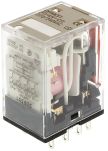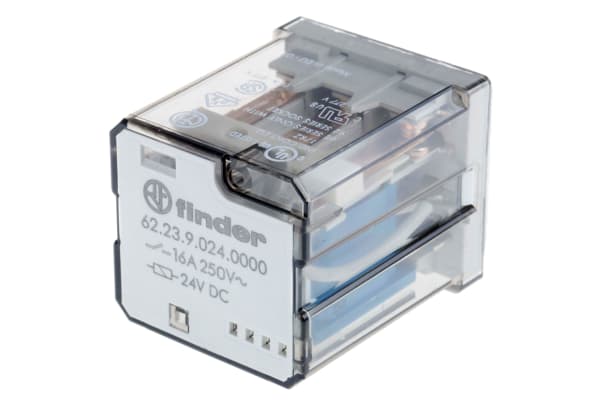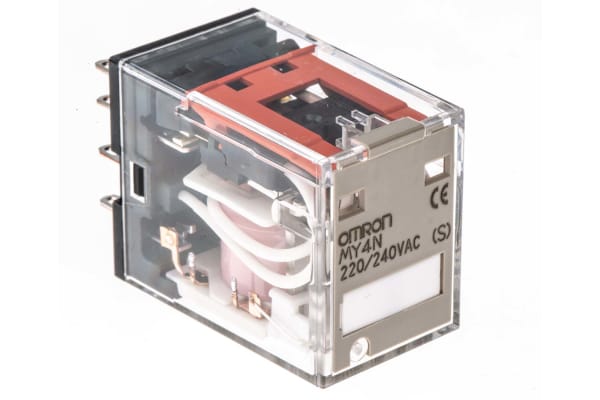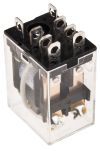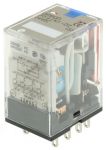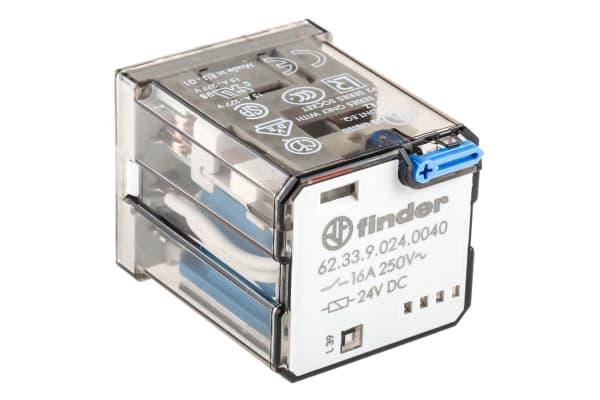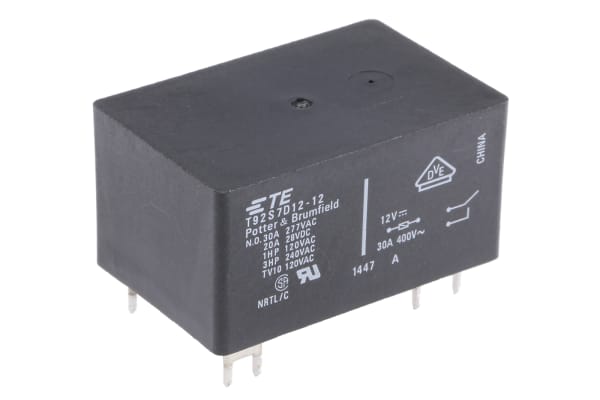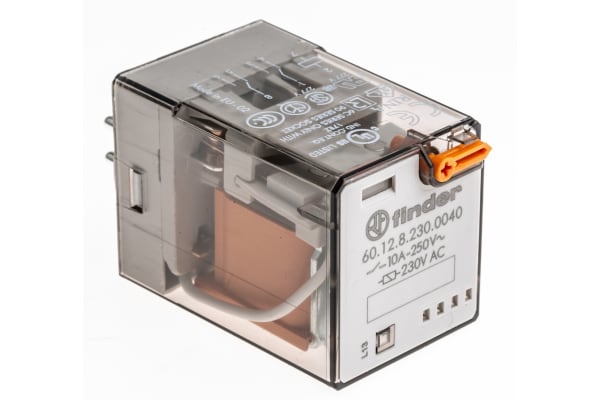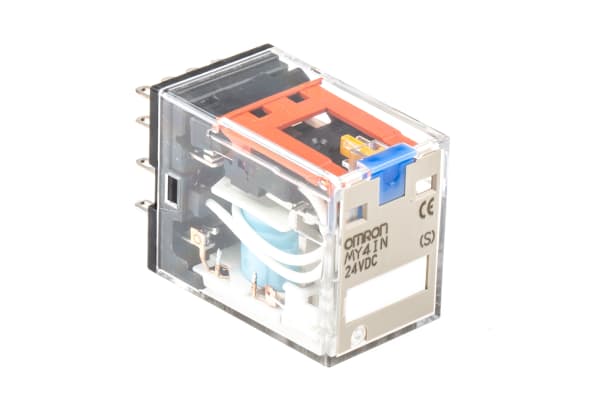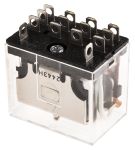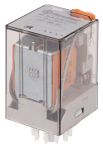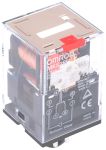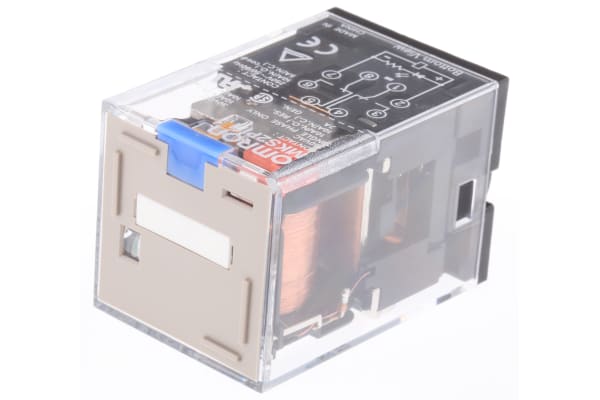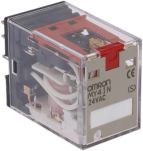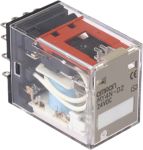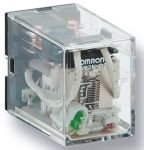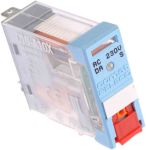Non-Latching Relays
Relays are electrical switches that are operated by electrical impulses with the primary function to open and close a circuit, they can also be referred to as industrial switches. There are 2 main types available, latching and non–latching relays.How do non-latching relays work?Non-latching relays are in a normally closed (NC) position and will stay in this state without power. When power passes through the circuit, the relay switched to a normally open (NO) position by using an internal coil to generate a magnetic force, holding this NO position. Once the current is turned off, it returns to the NC position. This makes non-latching relays well suited to push-button applications like keyboards and micro-controller input buttons.What are non-latching relays used for?Non-latching relays are highly durable and versatile components, making their performance long lasting and suitable for use in a wide range of applications, such as:Automotive enginesHousehold appliancesIndustrial machineryMedical equipmentTelecommunications equipmentWhat is the difference between latching and non-latching relays?Both types of relays in similar in design and function, however, a significant difference between them is that a latching relay will remain in the last position it when it was last powered, whereas a non-latching goes back to its normal position. This makes each more type of relay suitable for different applications. Considerations when selecting a relayWhen choosing a relay, it is important to consider a number of specifications to ensure it is fit for purpose, some factors include:Coil voltage – the required voltage to actuate the switching mechanism. If a voltage is too high this could damage the components, if it is too low then it will not actuate. Contact configuration – This is the state the contacts are in without power. For example SPST, single pole single throw.Contact material – the relay contacts are available in many materials that have certain properties. Common materials are gold, silver, tin oxide and nickel Coil power – the amount of power (watts) the coil operates at. This must match the power in the circuit for correct function. Coil resistance – the amount of resistance (ohms) in the circuit that the coil creates.
-
Releco, 24V ac/dc Coil Non-Latching Relay SPDT, 10A Switching Current Plug In Single Pole, C10-A10BX / AD 24 V
IDR219,849.44 -
Releco, 24V dc Coil Non-Latching Relay DPDT, 10A Switching Current Plug In, 2 Pole, C7-A20X / DC 24 V
IDR307,117.92 -
Omron, 240V ac Coil Non-Latching Relay 4PDT, 5A Switching Current Plug In, 4 Pole, MY4NCRAC220240S
IDR217,122.30 -
Finder, 24V dc Coil Non-Latching Relay 3PDT, 16A Switching Current PCB Mount, 3 Pole, 62.23.9.024.0000
IDR269,986.86 -
Omron, 240V ac Coil Non-Latching Relay 4PDT, 5A Switching Current Plug In, 4 Pole, MY4N 220/240AC(S)
IDR144,538.42 -
Omron, 24V dc Coil Non-Latching Relay 3PDT, 10A Switching Current Plug In, 3 Pole, MKS3PI-5 DC24
IDR300,300.07 -
Omron, 110/120V ac Coil Non-Latching Relay DPDT, 10A Switching Current Plug In, 2 Pole, LY2 110/120AC
IDR176,529.87 -
Omron, 24V dc Coil Non-Latching Relay 4PDT, 5A Switching Current Plug In, 4 Pole, MY4IN1-D2 DC24(S)
IDR196,144.30 -
Phoenix Contact, 24V dc Coil Non-Latching Relay SPDT, 1mA Switching Current PCB Mount Single Pole, 2961121
IDR295,475.13 -
RELAY 6233 24V 3RT
IDR295,160.46 -
TE Connectivity, 12V dc Coil Non-Latching Relay DPST, 30A Switching Current PCB Mount, 2 Pole, T92S7D12-12
IDR281,419.87 -
Finder, 230V ac Coil Non-Latching Relay DPDT, 10A Switching Current Plug In, 2 Pole, 60.12.8.230.0040
IDR295,789.80 -
Finder, 230V ac Coil Non-Latching Relay SPDT, 20A Switching Current Flange Mount Single Pole, 65.31.8.230.0000
IDR298,097.38 -
Omron, 24V dc Coil Non-Latching Relay 4PDT, 5A Switching Current Plug In, 4 Pole, MY4IN 24DC (S)
IDR147,894.90 -
Omron, 230V ac Coil Non-Latching Relay 4PDT, 10A Switching Current Plug In, 4 Pole, LY4 AC230
IDR286,244.81 -
Finder, 230V ac Coil Non-Latching Relay DPDT, 16A Switching Current Plug In, 2 Pole, 62.32.8.230.0040
IDR326,522.57 -
Finder, 48V ac Coil Non-Latching Relay 3PDT, 10A Switching Current Plug In, 3 Pole, 60.13.8.048.0040
IDR300,195.18 -
Omron, 110V ac Coil Non-Latching Relay DPDT, 10A Switching Current Plug In, 2 Pole, MKS2PI AC110
IDR190,270.46 -
Omron, 24V dc Coil Non-Latching Relay DPDT, 10A Switching Current Plug In, 2 Pole, MKS2PIN DC24
IDR273,658.01 -
Omron, 24V ac Coil Non-Latching Relay 4PDT, 5A Switching Current Plug In, 4 Pole, MY4IN 24AC (S)
IDR281,105.20 -
Omron, 12V dc Coil Non-Latching Relay SPDT, 10A Switching Current PCB Mount Single Pole, G2R-1-SNDI DC12(S)
IDR196,563.86 -
Omron, 24V dc Coil Non-Latching Relay 4PDT, 5A Switching Current Plug In, 4 Pole, MY4N-D2 24DC(S)
IDR336,906.68 -
Omron, 24V dc Coil Non-Latching Relay DPDT, 10A Switching Current Plug In, 2 Pole, LY2D-DC24
IDR305,964.13 -
Releco, 230V ac Coil Non-Latching Relay SPDT, 10A Switching Current PCB Mount Single Pole, C10-A10X / AC 230 V
IDR262,225.00




